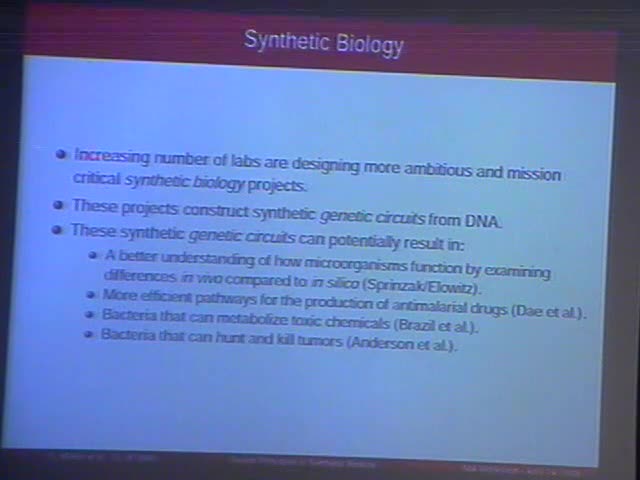Design Principles in Synthetic Biology
Presenter
April 24, 2008
Keywords:
- Biology
MSC:
- 97M60
Abstract
Recently, numerous engineers have demonstrated that genetic circuits can
be effectively modeled and analyzed utilizing methods originally
developed for electrical circuits leading to new understanding of their
behavior. If this is possible, then it may also be possible to design
synthetic genetic circuits that behave like particular electrical
circuits such as switches, oscillators, and communication networks.
Synthetic genetic circuits have the potential to help us better
understand how microorganisms function, produce drugs more economically,
metabolize toxic chemicals, and even modify bacteria to hunt and kill
tumors. There are, however, numerous challenges to design with genetic
material. For example, genetic circuits are composed of very noisy
components making their behavior more asynchronous, analog, and
non-deterministic in nature. Therefore, design methods must be adapted
to consider these issues. Interestingly, future electrical circuits may
soon also face these challenges which opens up the very intriguing idea
that these new design methods may in the future be utilized to produce
more robust and power efficient electrical circuits.
